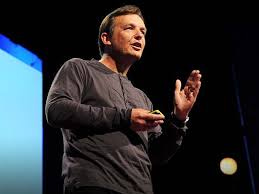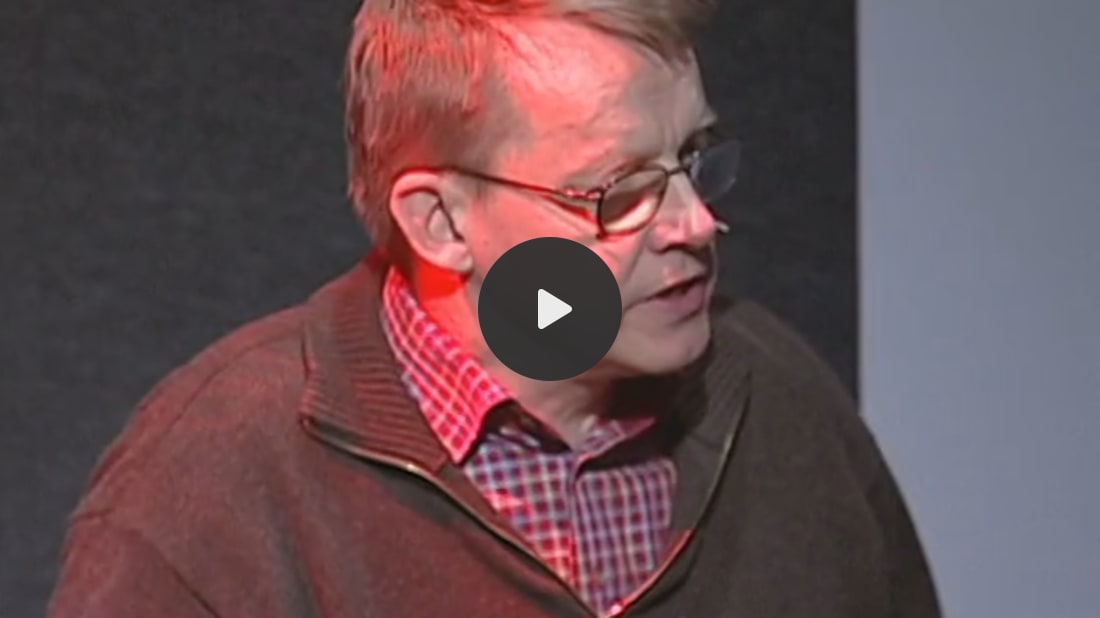You’re reading the My News Biz newsletter, which I will be sending you every other Thursday. My goal is to help you and other digital media entrepreneurs to find a viable business model that works for you. If you were forwarded this email, you can sign up here. Trust #4: 'Infectious generosity' might save humanity from itselfTed Talks nudge us toward solutions to the world's problems by trusting each other and working togetherYou’re reading the Your News Biz newsletter. My goal is to help digital media entrepreneurs find viable business models. Many of you know that one of my favorite podcasts is Steve Levitt’s “People I (mostly) admire.” I was inspired by his recent interview with Chris Anderson, the head of Ted Talks, on the power of TED (there’s a full transcript available). They talked about many topics, but there were several that caught my attention. I’ve chosen some excerpts from the interview to focus on a few things that might interest entrepreneurs and those working in the nonprofit world:
First a bit of history of TED. It was originally founded as an annual conference on technology and design. Anderson, a former tech journalist, took it over in 2001 and adopted the slogan “ideas worth spreading”. Now it is best known for its videos on Ted.com. Levitt introduced the podcast by saying, “Other than Wikipedia maybe, I can’t think of another website that’s been devoted to content generation that’s had as big and as positive an impact on how people think as TED.com. The most watched videos have over 70 million views. And every year there are over 3 billion views of TED Talks. It is just an incredible success story.” Levitt then asked Anderson why TED has been so successful. His answer, I think, gives entrepreneurs some clues as to how to think about their content. CHRIS ANDERSON: From a business point of view, my mantra throughout has been to track passion. It’s not your passion. Don’t follow your passion. Look at where people are really passionate about something because that’s a proxy for possibility and growth. You’re going to be able to do all the things that you want to do. Just from a media entrepreneur’s point of view, coming to TED was like, this is the ultimate demonstration of deep passion. People told me things like, “This is the week [of the annual conference] in my year that I carve out first of all.” You don’t hear that a lot. The power of scaling a human face and voiceLevitt mentioned that early on, Anderson unsuccessfully pitched the networks on a TED TV show. They were turned off by the nonprofit mission of TED. ANDERSON: TV turned out not to be interested, knowing with a great certainty that public lectures were inevitably boring. And so it wasn’t until the magic of online video came along. That seems like a mundane technology in a way, but it is actually a profound technology. For centuries, the only way that humans could scale ideas was through the written word. You’re a scientist, you can write a paper, eventually may write a book, people got to know about it that way. That was how knowledge was shared. But the most powerful form of human communication evolved over hundreds of thousands of years of a human opening their mouth and looking at other humans and people hearing their tone of voice and looking at the expression in their eyes. There’s so much biology in human-to-human communication that just isn’t there in text communication. So for the first time, that can scale. Above, Hans Rosling’s 2006 TED talk, in which he debunks myths about the so-called "developing world," has been viewed 15 million times. How TED went globalANDERSON: We were getting approached by people to say, “We like TED. Could you bring it to our part of the world?” And we were stressed by these ideas, because it’s really hard to put on a conference. And so we eventually started saying, “We can’t, but you could.” And so TEDx was giving people a free license to put on their own TED event. The x was intended almost as an asterisk to say, “X: self organized.” And we did an experiment with a few and they turned out okay, and so we turned on the tap. And suddenly hundreds and then thousands of these events were being held around the world. There were some rules that people were supposed to sign up for to adhere to the format, but we did not control which speakers came. . . . And so there was every possibility for terrible things to happen. And just occasionally, they did. The overwhelming story was that when you let go of control, things got better. People took so much more effort. It became worthwhile for them to invest their time, financial risk, to recruit a whole team and try to make something great, because it was their event. Because we’ve always been told: give and you shall receive. We know that there is this sort of reciprocity in how human societies go. But usually that has happened between a couple dozen people or maybe 150 or whatever the magic number is. But now, it can happen at truly incredible scale. There’s probably 60,000-plus people volunteering their time, no cost to us, to put on amazing TED events. And they are delivering 25,000 videos a year — some of which are not very good, but many of which are really strong. And many of the best TED speakers came up through TEDx. The original justification of this was: we’re a non-profit, we’ve got to do the right thing. But when you apply the benefit of hindsight on it, you would say, “This is the most brilliant business strategy you could do because I have 10 full-time people in New York who are overseeing a media operation that is 3,000 global TEDx events, 25,000 videos, a billion views a year, and so on.” Technology makes generosity easierANDERSON: We’re in an era where generosity and strategy actually belong in the same sentence. Some people will hear that and disagree, but I think it’s profoundly and importantly true now because we’re in an existential battle for the future in my view, Steve. The world is mean and it’s getting meaner and I don’t like it. And I think a lot of people are scared. We need every weapon in our armory to nudge better behavior, behavior that is giving and sharing. LEVITT: The ideas you’re talking about now are captured in your new book. It’s called Infectious Generosity: The Ultimate Idea Worth Spreading. And can I tell you, this is a book that could only be written by a die-hard optimist. Because essentially it’s a blueprint for recreating society based on the principle of shared generosity and collaboration. ANDERSON: Doesn’t sound very likely, does it? It’s like, “You jerk. How stupid can you be? Have you seen the world? Have you read a headline? Who are you kidding?” But that actually is the strategy. I’m persuaded. I’m persuaded that there is a pathway there that is interesting and different from the way that we have thought about generosity in the past. Final thought: the dangers of fear and loathingLEVITT: What scares you the most these days? If the world is an awful place in 50 or 100 years, what do you think the reason will be? ANDERSON: I think it’ll be that humans haven’t figured out how to stop hating each other. As you noticed, I’m a born tech optimist, and I really believed that the world was getting better, that the technology was helping, the internet was helping. The experience of the last 10 years has been the opposite of that. It’s been crushingly disappointing and terrifying. My narrative around that is that social media algorithms — they weren’t designed to be evil, but they have turned out to tap very effectively into our lizard brains. And they’re turning us into lizards. And it’s terribly destructive. Solving the biggest problems requires cooperation across huge numbers of people. We are sabotaging that superpower. And it’s potentially catastrophic. It may stop us from figuring out climate. It may stop us from figuring out artificial intelligence. You’re seeing poisonous darts being thrown at each other to undermine and show why other people are disgusting and untrustworthy. And that’s why I wrote this book, Infectious Generosity. It’s meant to be a battle guide to taking that on and trying, for God’s sake, to find some way of reclaiming the internet. Do you have a favorite TED Talk? Let us know in the comments below. Next time: Trust #5, A Spanish media icon warns journalists to avoid the ‘destructive polarization’ of societyYou're currently a free subscriber to Your News Biz. For the full experience, upgrade your subscription. |
Tras un mes de baja, Salvador Illa retomará el lunes su actividad de manera
presencial
-
Leer
Hace 17 minutos














No hay comentarios:
Publicar un comentario